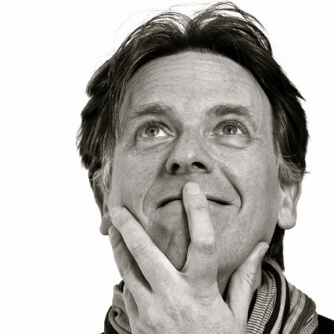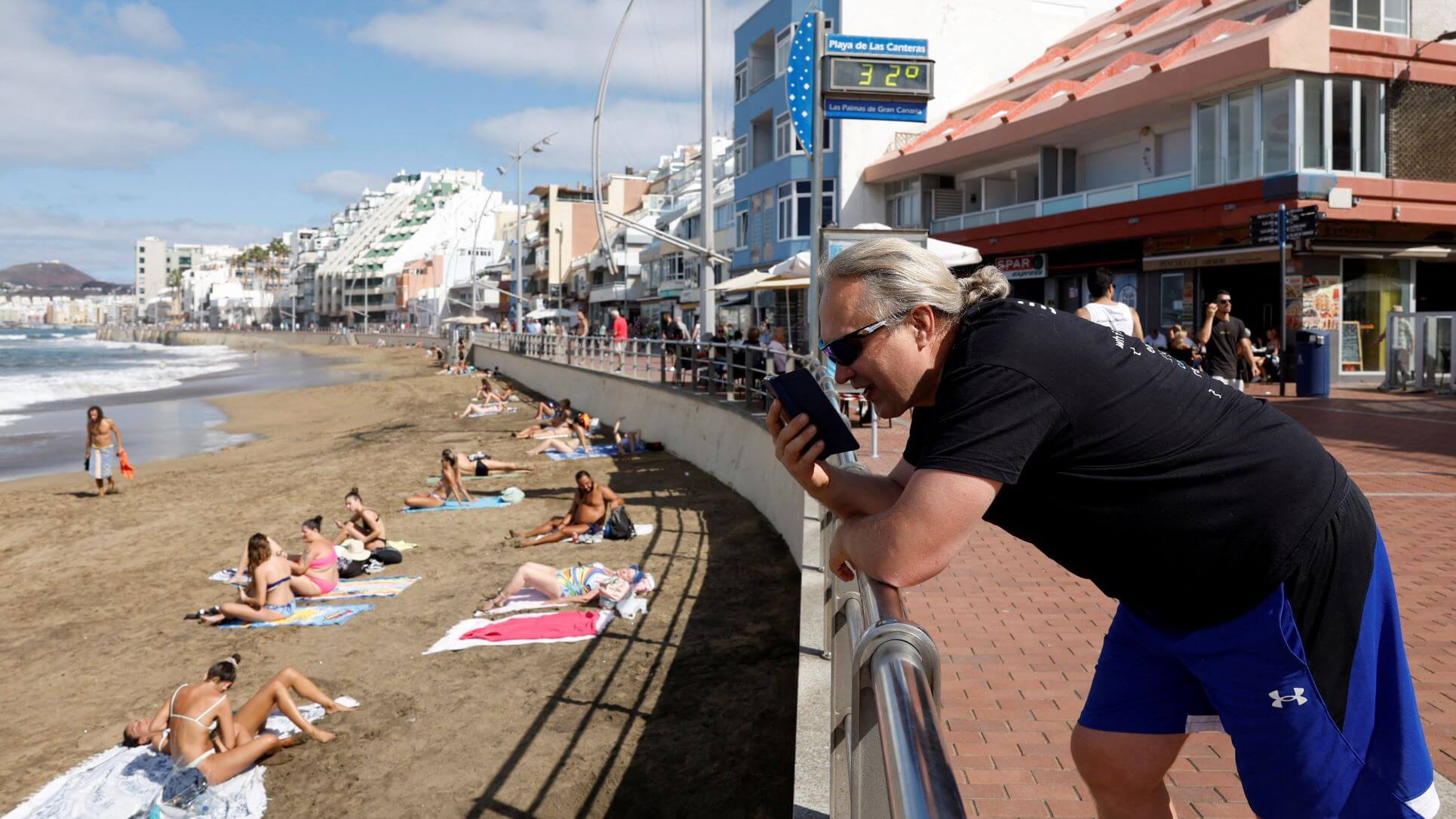Why The New ‘Alternative Workplace’ Is The Street
It is possible to break the phenomena of feeling tied to your desk. Time to stand up.

We all know the feeling. Hard at work. Under pressure. And our brains have gone to mush. The ideas won’t come. The figures don’t add up. The email just doesn’t want to get written. Our bodies are telling us to go for a walk but our brains are not listening. We convince ourselves we are too busy for a real break and just work harder.
Not better. Just harder.
When the way you’re working isn’t working it’s nuts to do more of it. No wonder mental health is increasingly fragile across the working world. Research suggests that one in four people have been diagnosed with a mental illness. That and the increasing complexity, acceleration, distraction, mixed messages, need to do more with less, job uncertainty, march of automation and lack of obvious direction.
What’s saner is to listen to your inner alarm system. To get up from the glowing screen, leave the building and go for a walk in the street.
Why? Because as I discovered over many years working with business people, the outside world isn’t just a place to escape work and clear your head. It’s an alternative workplace. A place where work can continue – real, creative work - but in a way that supports your mind.
Here are four essential elements of work which I honestly think are better done wandering ‘out there’ in the real world, rather than riveted to your chair in an air conditioned cubicle.
Breakthrough: Rock and Stroll
It’s convenient for teachers to have kids sitting quietly in rows. But no-one has proved it helps with creativity. Breakthroughs can happen at your desk occasionally, sure.
However, Stanford University research shows that it is walking, and in particular outside, that gets your creative juices flowing (by up to 60%) “Walking opens up the free flow of ideas, and it is a simple and robust solution to the goals of increasing creativity and increasing physical activity.” (Oppezzo, Schwarts. 2014, p.1142)
So, grab your coat, switch off your phone and get out there. Have a stroll. When did Archimedes have his eureka moment? Not at the laboratory – but in the bath - when he knocked off after a hard day’s experimenting and let himself relax.
Remember, your mind isn’t just the grey stuff between your ears. It is distributed via your nervous system down your spine and out through every part of your body. It’s mind and body working together. When you leave the two-dimensional screen and walk down a street you become a three dimensional being again.
All your senses are stimulated. And the thoughts will start to flow. Your wellbeing will benefit too, research has shown time and again that a short walk every day can reduce ageing and halve your risk of dying from a heart attack. It’s a win-win.
Effective - not explosive - Communication
My background is in the theatre and if people ask me when I left drama for business, I tell them I didn’t. Business is drama. The emotion may be supressed but it’s there, bubbling just beneath the professional surface. Virtual technology has just made this more acute.
Nothing heats up the emotional climate than email. A lot of people prefer emailing to live conversation – especially when the message is a difficult one – because they think it’s less emotional. But there’s no such thing as an unemotional email. Even the most neutral comment can sound snarky or aggressive if we’re feeling low, vulnerable or suffering.
Annoying messages ping-pong around organisations gathering emotional energy like a tropical storm. By the time it gets to you, something’s got to give. You wind yourself up, let them have it and - Stop. Before the hurricane breaks right over your head. It’s going to sound like the sort of thing your mother would say, but before you hit ‘send’, get up and go for a walk.
Physically walking away from the conflict tells your mind to do the same. A few minutes walking and breathing creates an emotional fire-break that can stop the problem in its tracks.
You are then able to talk through the conversation in different ways, not just react to it. When you return to the office you can review and rewrite. Better still, delete the message and pick up the phone. Or, here’s a revolutionary idea, walk over to your colleague and actually talk to them instead.
Psychologist Victor Frankl explains “Between stimulus and response there is a space. In that space is our power to choose our response. In our response lies our growth and our freedom”.
Fresh Answers : Stranger wisdom
Why do we think we should have the answers to our questions? Especially when they are difficult questions. I ask because I see people wrestling with their internal dilemmas and not feeling it’s ok to ask others. It’s a bit like we’re lost in unfamiliar country without a map – but determined not to ask a local for help (I understand I am not the only man who does this, right?).
There may be reasons why you don’t want to share your inner thoughts with colleagues, or burden your friends. If so, why not try strangers? I know, sounds wild, but our experience with my social enterprise, Street Wisdom, has been that complete strangers often have great answers to our questions. We just never bother to ask.
If it sounds implausible, just imagine you were a stranger and you saw yourself walking along, evidently troubled. Wouldn’t you want to help? If you were asked for your opinion or some advice, wouldn’t you give it – and be pleased, even flattered to be asked. Strangers can be great teachers and the street right outside your door is a great place to find them.
Direction: SatNav for the Soul
Working life has often been puzzling but I don’t think I ever seen as many people looking really lost. There are many reasons why, but a big one is that career ladder that previous generations relied on for direction has pretty much disappeared.
A career is something you are expected to create, not just follow. Predictable is the new boring. Work progress is now a zig zag affair that is likely to take in a whole portfolio of different roles, different sectors, different industries. Organisations are looking for self-leadership. Self-direction is the new direction.
And a lot of people are feeling very disorientated in our uncertain world. Street Wisdom helps people gain a sense of orientation and start to understand how to self-direct. Here’s a simple way to start to make that connection:
Step one: Get out of your workplace and into a street.
Step two: Congratulate yourself. You’ve done the hard part, well done.
Step three: Slow down. Spend a few minutes moving and breathing slowly. Don’t care what others are thinking. They are usually too stressed themselves to even notice you.
Step four: Ask yourself a simple question about your future direction. A good one is “what’s next for me?”
Step five: Think of a number between 100 and 300. Walk exactly that number of steps without thinking where you are going. Let your feet take you where they want to take you. As you walk count each step. When you get to your total, stop and look around. Really look. And listen.
Use every sense to capture everything you can. Somewhere in all that wonderfully rich information there is an answer to your question. It may not be the only answer. And it may not be one that you choose to follow.
But I assure you, it’s there. And if you want more answers, more perspective, more stimulus just repeat the exercise and continue walking for as long as you care. Have a wanderful time.
Thanks for signing up to Minutehack alerts.
Brilliant editorials heading your way soon.
Okay, Thanks!




